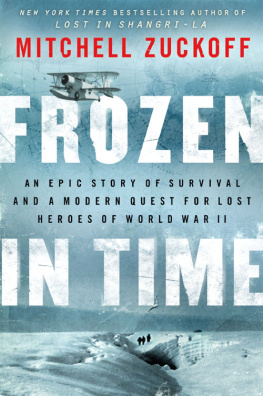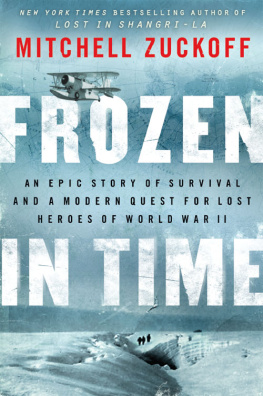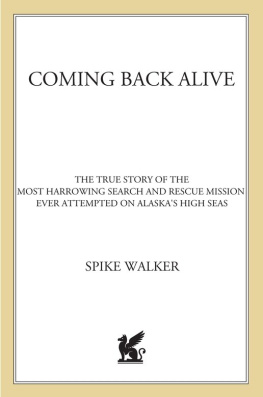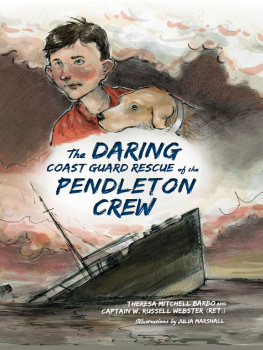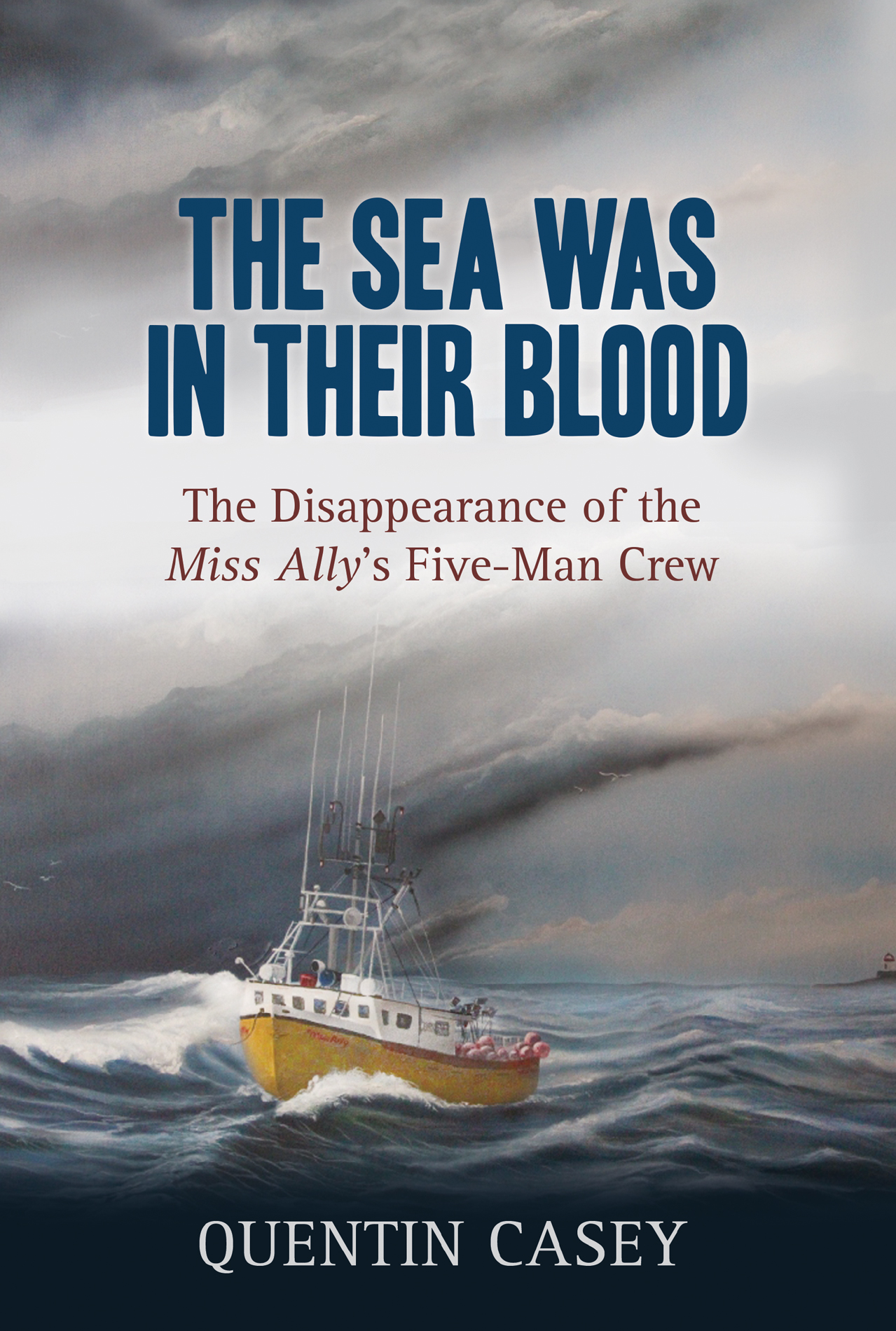The ocean was like an uncaring God, endlessly dangerous, power beyond measure.
Prologue
George Hopkins is concerned. The wind is blowing hard in the darkness outside his house in Woods Harbour, a fishing community on Nova Scotias south shore. And the weather is getting worse. The gusts are increasing in power, and snow will soon blow in off the cold dark Atlantic Ocean, reducing visibility and making conditions treacherous.
Georges son Joel is far from Woods Harbour on this brutal Sunday night in February 2013, offshore on a boat called the Miss Ally. Joel, twenty-seven, is aboard with four other men: Billy Jack Hatfield, thirty-three; Cole Nickerson, twenty-eight; Tyson Townsend, twenty-five; and the boats twenty-one-year-old owner and captain, Katlin Nickerson. Theyve been longlining for halibut south of LaHave Bank, nearly 200 kilometres from Halifax, in an area called the Edge, where the continental shelf falls off to deeper water.
February is a risky time of year to fish offshore, particularly in a twelve-metre (40-foot) open-stern Cape Islander. But this is when the price of halibut is best, because fewer fishermen want to go to sea to get it.
Two days earlier, on Friday, February 15, weather forecasts from Environment Canada predicted winds of 50 knots (90 kilometres an hour) would hit by Sunday afternoon. Shortly after midnight yesterdaySaturdayEnvironment Canada meteorologists warned that gale- and storm-force winds were approaching. A low-pressure system, churning toward eastern Canada from Cape Hatteras, North Carolina, was intensifying and expected to lie over Nova Scotia on Sunday night. By Sunday evening, as George Hopkins sits worrying in Woods Harbour, a storm warning has been in effect for most Nova Scotia waters for nearly forty-eight hours.
The worsening forecast has prompted other local boats to haul in their longlining gear and steam for shore. Aboard the Miss Ally, technical troubles prevented the crew from securing their gear the night before. Katlin, the young captain, decided to stay offshore until this morning, haul the gear in the morning light, and then dart for home. But even that straightforward plan failed. The gear had been difficult to find, and so Katlin wasnt able to start steering for shore until late this afternoon. Hes beating a very late retreat. Though the five men are now making for home, they are directly in the path of a violent storm delivering screeching winds and waves large enough to swallow boats much bigger than the Miss Ally.
George Hopkins is a lifelong fisherman. Although he sticks to lobstering now, he used to skipper his boats to the Grand Banks. Hes been out in big storms. The weather headed toward the Miss Allytoward his son, Joelis bad. Very bad. Perhaps worse than anything hes ever been out in.
Joel absolutely loves fishing. And dirty weather. Hes likely thrilled to be riding in on storm-force winds and tall waves. Cole, on the other hand, didnt want to go on this trip at all. A burly and strong former junior hockey player, Cole cried briefly before leaving, scared of what might happen. Last night, Cole and Tysonalso a former junior hockey player and now the father of a seven-month-old daughtervoted to abandon the longlining gear and immediately head for home, to ensure they avoided the full strength of the approaching storm. The pair was overruled. The crew stayed to retrieve the gear. Now Katlin must skipper his boat in darkness. His large overhead floodlightessentially the boats headlightis dead. The lighting failure first prevented the crew from finding their gear in the water. Now it means Katlin must steer his boat blindly through wind-whipped snow and towering winter waves.
Katlin grew up just down the road from Georges house in Woods Harbour; he even briefly crewed aboard Georges boat. Katlin comes from a line of successful fishermen. His grandfather, Wayne, is known in Woods Harbour as the Cod Father, a nickname he earned by landing big catches. Perhaps no one in Woods Harbour brought more fish to the wharf than Wayne. Within the industry, top fishermen are known as high liners. Wayne, before he retired, was a high liner of the first degree. Katlins father, Todd, followed Wayne to sea and is now considered one of the areas top captains.
Katlin has also followed in the family trade and is now the youngest captain in Woods Harbour. Well-liked, good looking, and possessing a crooked grin, Katlin bought the Miss Ally two years ago, in 2011. Hes known around the local wharves for his aggressive approach to fishing. Hes fierce, they say. That reputation has helped accelerate Katlins career: hes only three years out of high school yet he has his own boat, a crew of men all older than him, andmost importantlyplenty of quota to chase. If he can catch the fish, hell likely make good on what is a huge financial undertaking for a twenty-one-year-old: Katlin paid roughly $700,000 for his boat, gear, and a lobster licence. On this trip, he and the crew have caught the fish. In a call home to his grandfather Ronnie Sears, Katlin reports that theres between fifteen and twenty thousand pounds of halibut in the Miss Allys hold, worth up to $160,000. Now Katlin has to guide the fish, his crew, and the Miss Ally to the wharf.
Fishing is not an occupation for the skittish. Its inherently dangerous: an average of five to six fishing-related deaths occur in the province each year, according to the Fisheries Safety Association of Nova Scotia. Katlins assertive approach has served him well so far, but it has also bled into recklessness. Joel and Billy Jack crewed for Katlin during the fall lobster season. Just before Christmas, the trio went out to haul traps on a day so blustery that all other local crews stayed on land. At sea, a large wave hit the Miss Ally, covering the deck with water and nearly washing Joel and Billy Jack overboard. Earlier this month, on their first halibut trip together, the Miss Ally crew steamed home during a freezing gale. The experience spooked Billy Jack and Cole. For this second halibut trip, Billy Jack brought a survival suit. Cole, meanwhile, only returned out of a sense of duty and a desire to get paid for the first trip.






